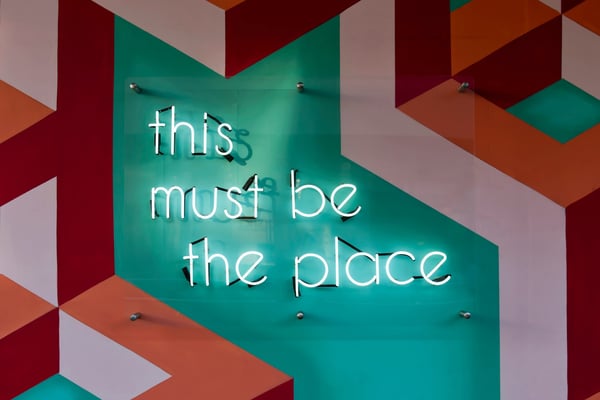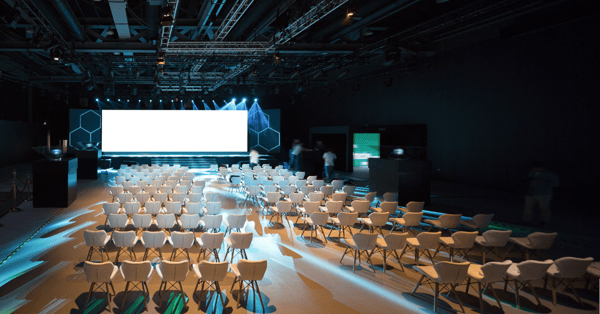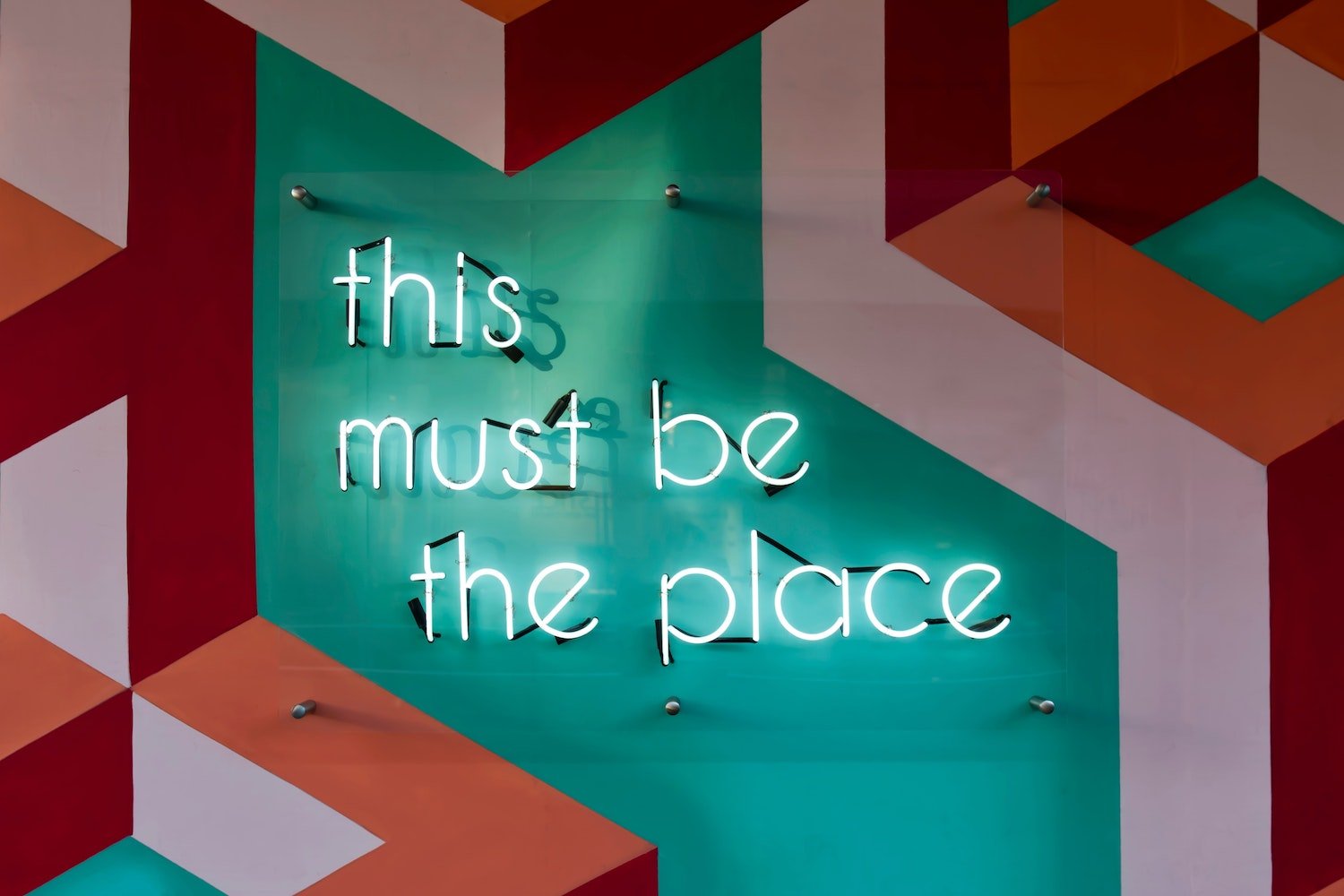The field of events has been shaken up in recent years. At the beginning of the Covid pandemic, encounters between people were suddenly forced online and the nature of the events suddenly became virtual. When the Zoom boom was at its peak, people spending their time in online events better understood the importance of real live meetings and the collective longing for meetings in real life grew.
Now that live events are coming back, we notice that the event field has changed. Although live events are clear favourites of audiences and event organisers, online and hybrid events have become a natural part of the spectrum of events.
But on the other hand, nothing has changed. Four truths still apply to events, by following which any organisation will ensure that the financial and time investments made in events produce results.
In this blog trilogy, I will go through the four most important strategic structures that make events successful. I'll start with the most important, the participant experience. The first step is to understand how the participant experience comes to life. After that, it's good to know how it can be measured (with the Experience Value Score, of course) and further improved (of course, following the Event Success Management methodology).
In future texts, I will go through how you build a meaningful event portfolio and how an effective event strategy guides the everyday life of those who work with events.
The event participant is an individual and the participant experience is unique
All events are united by the audience and, above all, by the individual participant. The events can be diverse, even if they are similar in content and repeat, such as events as part of a wider road show tour. The goals of events also vary from organisation to organisation. One aims at training, another at sales and the third at increasing brand awareness.
Each event is made only by its participants. If you don't have participants, you don't have an event either. All participants are also united by the fact that they are each individuals who experience and see the world very subjectively. No two experiences are ever the same at the same event. Only the participant himself can evaluate the participant's experience.
The participant's experience is affected by many things. Some of them are things that you, as the organiser of the event, can influence. But for the most part you don't. The personal experience is influenced above all by the participant's own expectations, life situation (such as a tight calendar just at the time of your event), the company the participant ends up with during the event and, for example, a good or bad customer service experience that has hit the spot. Each experience is unique.
Truths number 1 & 2 of a successful event: The participant experience must be measured (1) and developed (2)
The fundamental truth about events is that only by focusing on continuous and agile improvement of the attendee experience, can you reach and even exceed your goals.
The most important thing in developing the participant experience is measurement. There is only one way to find out about the participant's experience: by asking the participants themselves. Only I can judge my own experience.
We previously wrote how to positively influence the event's participant experience in the blog post 3 easy steps to a successful event.
Measuring participant experience and Experience Value Score
There is one thing that unites all participants: in order to participate in your event, they have invested their time in it. Time is a non-renewable natural resource that we all have a limited but unpredictable amount of. Each of us makes small investment decisions every day. Do I go for a run in my free time or do I watch a movie with my family? What will I use my next meeting-free hour at work for? So it's about investing time, and therefore the participant experience should be measured relative to the time investment.
The measure we developed, the Experience Value Score (EVS), measures the value experienced by the participant immediately and subjectively. The participant simply answers one question:
"Was the event worth your time?"
Answering this is done by clicking on the appropriate smiley from five options. From these, Lyyti calculates the EVS received by the event, which can be compared to different event types and to the average of your own organisation.
The EVS survey will automatically arrive to the participant right after the event ends. When measuring the subjective experience, it is extremely important that the feedback is received immediately, and not after one night of sleep. My own experience is strongly tied to a feeling, and the feeling quickly fades over time. The thing that excited you now will seem much less exciting a week from now. The same goes for a negative experience. Even if negative feedback is accepted less gladly, if anything it encourages learning and doing things a bit differently.
Along with the smiley face assessment, it is important to collect a short open feedback, with which the participant justifies his answer. The answers are divided into positive, neutral and negative. To develop the participant experience for the next event, you should pay attention above all to the extremes: negative and positive.
Participant experience development and Event Success Management methodology
Event Success Management is an easy and practical way to ensure that every event is more successful than before. By focusing on the event cycle, the whole can be divided into parts and developed systematically.
We call this “plan-implement-measure-analyse-share” entity the event cycle. By actively implementing it, a flywheel is created for the entire organisation, which leads to an agile development of participant experience and, with it, the realisation and exceeding of the events' business goals!
This development of the attendee experience is the grassroots level of Event Success Management, without which events will never achieve incremental benefits.
Instead of looking at events as individual entities that start and end, it is more useful to think of them as a continuous wheel of events, where each event feeds the next as you refine and improve your processes. The most effective tool in the development of events are retro sessions.
A well-managed retro helps identify things that went well that should be brought to new events, as well as problems that may require a different approach. They give you space to celebrate what was good and focus on how to become even better.
If more than one organiser has participated in the event, the results must be reviewed in a joint retro session, where the feedback is analysed and a commitment is made to keep the good things and develop the bad ones. In retro, it is important to choose only 2-3 things to develop or change. If you try to fix everything, you will hardly get anything done. Things that work and that should be developed are recorded in the retro document.
Accordingly, the planning of the next event starts by reading the retro of the previous event and thinking about how to improve the participant experience in the next event. It is also important to make the document, results and lessons learned public in your own organisation, so that the lesson is not only known to one organiser, but others also benefit from your experience.
We previously wrote a blog about how to succeed in retro and included a downloadable template to support the retro session.
What’s up next
This development of the attendee experience is the grassroots level of Event Success Management, without which events will never achieve incremental benefits. In the next blog, we will discuss one level higher area: the event portfolio and its management.
The event organiser's work is facilitated by a versatile and time-saving event management system such as Lyyti. Familiarise yourself with the system with a demo.
Hero photo: Tim Mossholder on Unsplash
******
If you want to see how Lyyti can help you create great event experiences, we suggest you watch our demo!
Similar articles

4 Truths About Successful Events - Part 2/3: Event Portfolio

4 Truths About Successful Events - Part 3/3: Event Strategy

Cancelling events – things to consider and tips about communications

Rewriting the rulebook on events and event management software - the launch of Lyyti Next Gen





